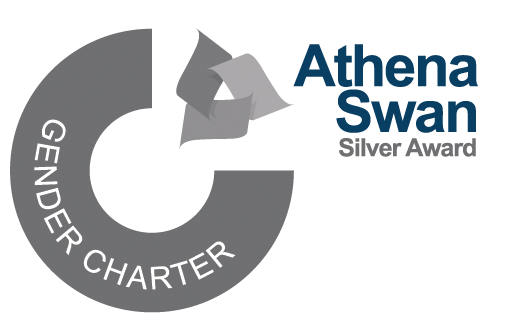
Athena Swan

The Athena Swan Charter is a framework which is used across the globe to support and transform gender equality within higher education and research. Established in 2005 to encourage and recognise commitment to advancing the careers of women in science, technology, engineering, maths and medicine (STEMM) employment, the Charter is now being used across the globe to address gender equality more broadly, and not just barriers to progression that affect women.
LSTM is a proud holder of a Silver Athena Swan award which was granted in October 2022 and remains valid until 31 October 2027. The submission for our silver award (excluding data, annexes and personally identifiable information) can be downloaded here. It charts our progress from 2013 when we joined the scheme, with a focus on impact and progress since our last award, bronze, in 2017, to 2021. It details our previous key priorities, actions taken to address them, and the impact of and gaps in our progress and provides quantitative analysis of staff and student data and a qualitative assessment of LSTMs gender equality context, based on the most recent staff consultation data. The evidence is synthesised to identify future key priorities, and actions to deliver these priorities over the period 2022 to 2027.
Our evidence-informed gender equality priorities for 2022 to 2027 are:
- Increase the proportion of women Professors and corporate leaders
- Ensure that under-represented voices are heard in decision-making at LSTM
- Increase confidence in the way in which LSTM deals with bullying, harassment, and discrimination
- Enhance the quality and quantity of data on gender, ethnicity, culture, inclusion, and social mobility and embed this in decision-making throughout the organisation
- Understand and address barriers to men and women’s’ progression at key career points
- Build an inclusive workplace where everyone can thrive and is recognised for their contributions
By being part of Athena Swan, LSTM has committed to the eight Athena Swan principles:
- adopting robust, transparent and accountable processes for gender equality work, including:
- embedding diversity, equity and inclusion in our culture, decision-making and partnerships, and holding ourselves and others in our institution/institute/department accountable.
- undertaking evidence-based, transparent self-assessment processes to direct our priorities and interventions for gender equality, and evaluating our progress to inform our continuous development.
- ensuring that gender equality work is distributed appropriately, is recognised and properly rewarded.
- addressing structural inequalities and social injustices that manifest as differential experiences and outcomes for staff and students.
- tackling behaviours and cultures that detract from the safety and collegiality of our work and study environments, including not tolerating gender-based violence, discrimination, bullying, harassment or exploitation.
- understanding and addressing intersectional inequalities.
- recognising that individuals can determine their own gender identity, and tackling the specific issues faced by trans and non-binary people.
- examining gendered occupational segregation, and elevating the status, voice and career opportunities of any identified under-valued and at-risk groups.
- mitigating the gendered impact of caring responsibilities and career breaks, and supporting flexibility and the maintenance of a healthy ‘whole life balance’.
- mitigating the gendered impact of short-term and casual contracts for staff seeking sustainable careers.